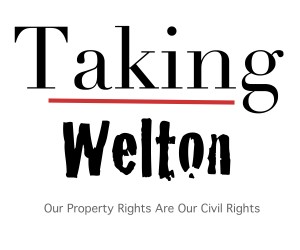TransCanada Is Seizing People’s Land To Build Keystone, But Conservatives Have Been Dead Silent
“For Julia Trigg Crawford, watching TransCanada construct the southern leg of the Keystone XL pipeline on a corner of her 600-acre farm was “gut-wrenching.”
Crawford, who lives in Direct, Texas, had been trying since 2011 to keep the pipeline company off her property. But she ultimately lost, the portion of her land needed for the pipeline condemned through eminent domain — a process by which government can force citizens to sell their property for “public use,” such as the building of roads, railroads, and power lines. Crawford can’t wrap her head around why TransCanada, a foreign company, was granted the right of eminent domain to build a pipeline that wouldn’t be carrying Texas oil through the state of Texas.
That question — how eminent domain can be used in a case like Keystone — has some anti-Keystone groups stumped too. But the groups that usually are vocal proponents of property rights, including the Institute for Justice, have been silent when it comes to the controversial pipeline.
“I have not seen a single group that would normally rail against eminent domain speak up on behalf of farmers or ranchers on the Keystone XL route,” said Jane Kleeb, founder of the anti-Keystone group Bold Nebraska.
That’s surprising to Kleeb, whose organization is supporting the efforts of a group of Nebraska landowners along the pipeline’s proposed route who have held out against giving TransCanada access to their land. She had thought that at least a few conservative or pro-lands rights groups would have voiced their general support for Keystone XL, but still denounced the use of eminent domain to get it built. That hasn’t happened, Kleeb said — not among property rights groups nor among most pro-Keystone lawmakers.”
Israel, Josh and Katie Valentine. Climate Progress 1 March 2015.
